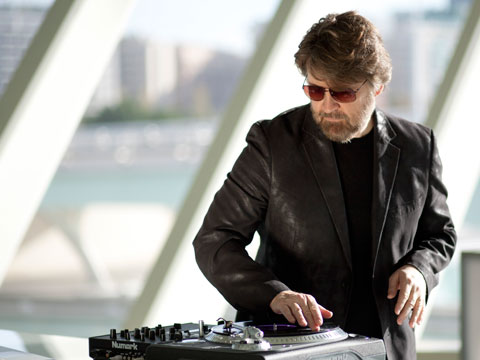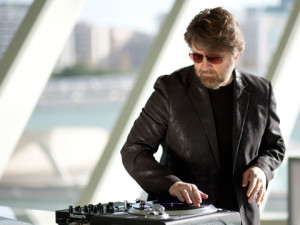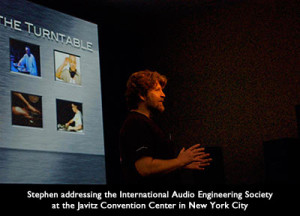Interview with Stephen Webber – Director of the Master in Music Technology
Innovation and the Technology Department. Berklee Music School, Valencia and Boston, USA.
1. How have you adapted to Valencia
The rhythm of life is at a different tempo in Valencia than it is in
the states. It took me a little while, but now I appreciate that
waiters are not trying to turn over my table as quickly as possible,
even if it does mean that I need to chill out a bit and take my time
more. Once you relax into it, you realize the rewards of being
present in the moment, rather than always thinking about the next
thing on your schedule.
I used to be a morning person, getting up at 6:00 AM to go to the gym.
In Spain, people stay up late! 8 PM here seems like 6 PM back in
Boston, and I find myself staying up until at least midnight, and
usually later; it just feels right here. I still like mornings, but
they get going an hour or two later now.
2. What you miss about the US?
Spicy food! Paella has a rich heritage surrounding it, but give me
jambalaya any day.
Big cups of coffee. Expresso is nice, but sometimes I just want a
huge mug of joe. It’s just not a “thing” over here.
And bacon. The Iberian ham is great, and there’s a rich culture
surrounding it, but it’s not the same thing as good ol’ American
bacon.
3. Tell us what’s happening in your field these days.
“When I started teaching remixing, it meant something totally different than what it means today. Then, it meant redoing musical parts and getting a better mix. Now it means preparing a dance, trance, jungle, or house remix. Today, many remixers are DJs, and studying their work is how I learned about using the turntable as a musical instrument. In 1997, one of my students brought in a video of a championship DJ competition. It just blew my socks off, and I thought, ‘I’ve got to do that!’ I bought a pair of turntables, set them up in my basement, and started practicing—much to the chagrin of my family. They thought I’d totally lost it.
“People take it for granted today that jazz is serious music worthy of the same disciplined study as classical music. But when Berklee began teaching jazz improvisation in the 1940s and rock guitar in the 1960s, most other music schools perceived those musical forms as a threat to ‘serious’ music. It’s the same situation with hip-hop and turntablism today.
“I think this is an important cultural movement. Hip-hop has been widely misunderstood and misrepresented in the media. To me, it is urban folk music that originated in the Bronx. DJs are the musicians of the culture, and the turntable is their instrument. The level of performance is incredibly high, and the creativity involved in developing different techniques is amazing.”



